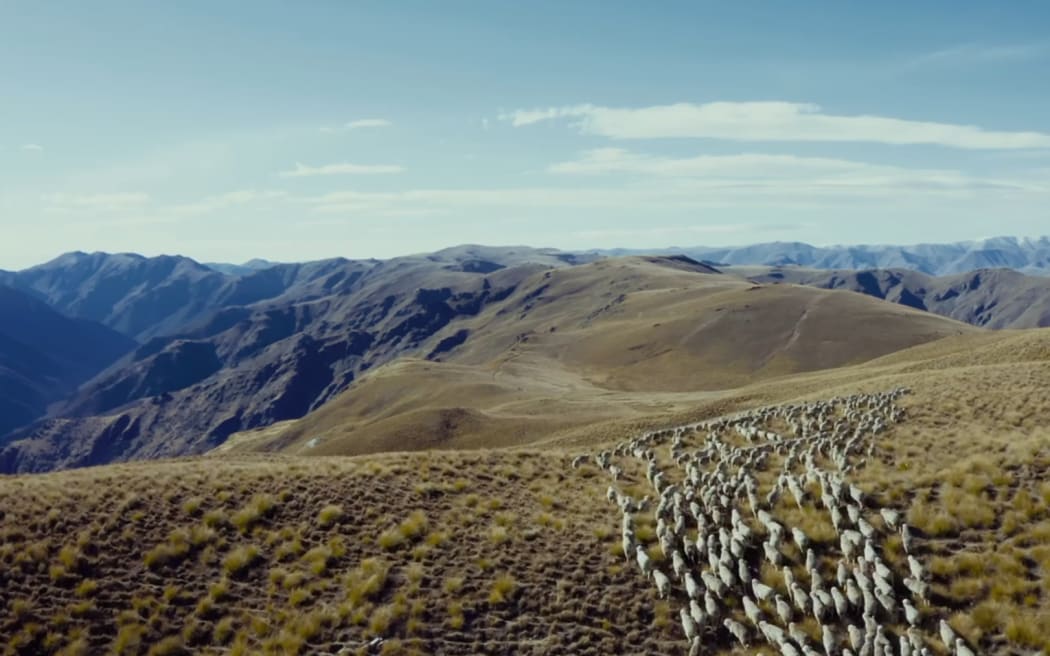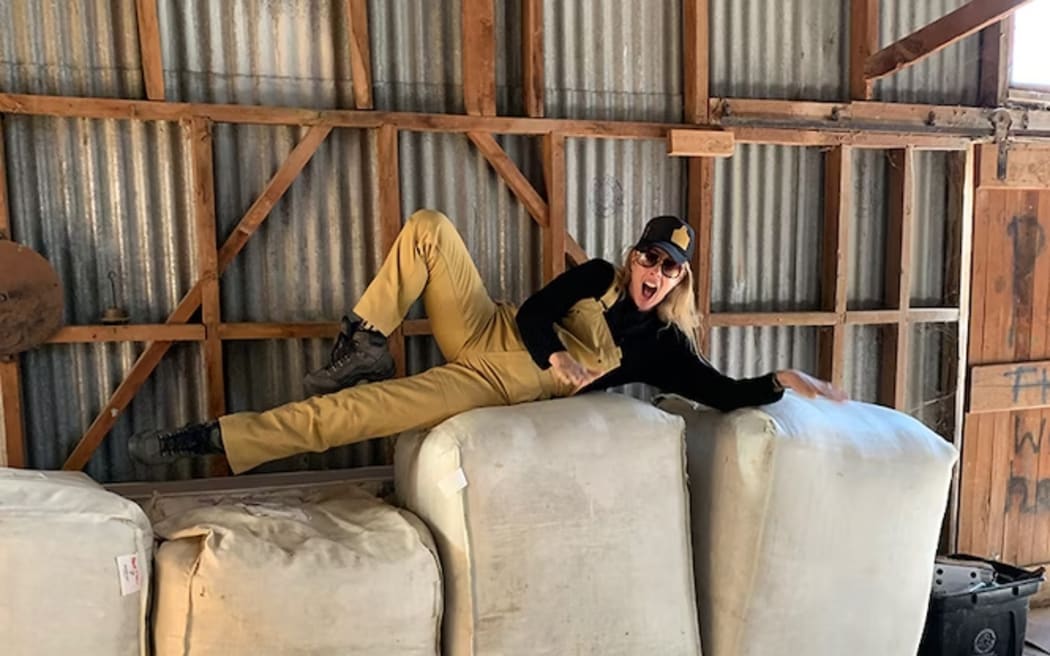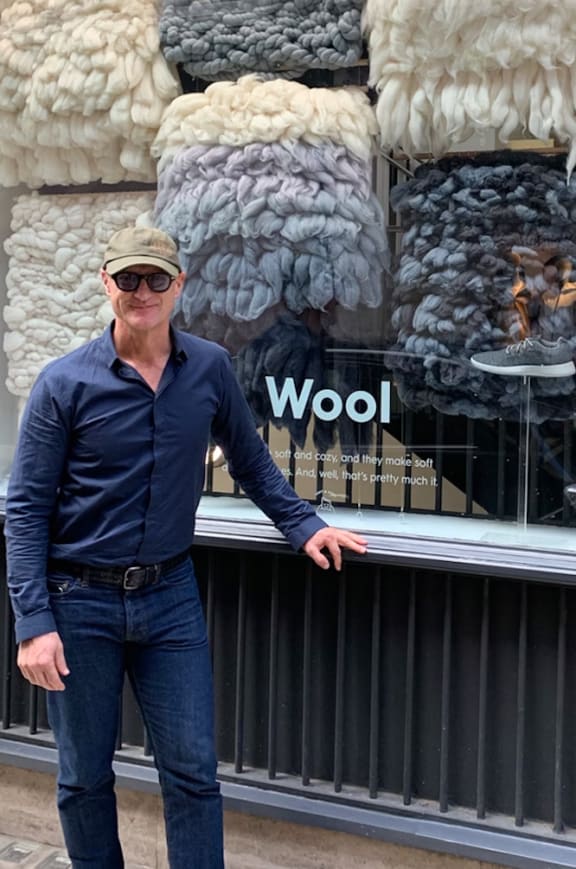For 30 years, the closest Justine and Geoff Ross had come to cows was two cowhide chairs in their Auckland living room.
But that didn't stop the couple behind the successful 42 Below vodka business from buying a high-country station at Lake Hāwea and embarking on a new way of farming.

Photo: Screenshot
The station isn't just carbon neutral, it's carbon positive.
They detail the struggles, even outright hostility as well as the triumphs and deep satisfaction from having a dream, and the courage to chase it in their new book, Meet You At The Main Divide: A Family's Story Of Life On Lake Hāwea Station.
When she first set eyes on the property it was a “hard no” Justine Ross tells Jesse Mulligan, but a trip to the back country on the property changed her mind.
“There's a stream there and we sat there as a family and had a bit of a picnic, and I just couldn't believe it, it was unfathomable and it still is really, that we could actually own this piece of land.”
Geoff, despite years in the marketing game in Auckland, felt the pull of the land strongly, he says.
“I thought I'd suppressed it after being in Parnell and the agency worlds, but it was always there actually and after a couple of trips down here for recreation, the pull finally got the better of us.”
Their first year on the property wasn’t plain sailing, Justine says, but gradually the family settled into life on the farm. They were also driven by a desire to do something tangible for the climate, Justine says.

Photo: Hawea lake Station
“Geoff was part of Pure Advantage, a lobby group for the business case for the environment, which does amazing work.
“And I've been involved with Greenpeace, there was just so many, so many factors pointing to having the need to do something significant about what we believe is the existential threat that our planet is facing.”
Having made their money “selling booze” they wanted to leave a more wholesome legacy, she says
“A legacy that's really about what we believe in, to become climate advocate people through farming was just a no brainer for our whole family.”
They acknowledge they met some resistance to the way they planned to farm at the outset, Geoff says.
“It was probably at a ram sale, the first ram sale I went to actually and the subject of climate change came up, over smoko.
“And there was a sense of resistance at that point. But it's amazing how much that's changed in the last few years.
“And in fact, the last ram sale I went to, now the conversation is that the climate is definitely changing.”
Seasoned farmers from the region know better than anyone how the climate has changed, he says.
“One of the drivers for coming here, with a lot of discussion in the media was around farming as a problem in climate change, I guess what we wanted to disprove that and show that farming can be part of the climate change solution.”
Being a carbon positive farm means they sequester twice the amount they emit, Geoff says.
“We emit largely through our stock and tractor hours, we emit 2500 tonnes of greenhouse equivalents every year. So, it's a big number.
“But thanks to a lot of that bush, a lot of the plantings, we’ve planted 22,000 trees, a lot of the regenerating gullies and and steep faces which have little farming value, because we're protected that, it's sequestering 5500 tonnes.”
Country Calendar featured them last year, and they copped some pretty virulent online burns, being called ‘Instagram farmers’ and ‘five-minute farmers’.
“I mean, all those things are true. In many regards, we are, we've only been here six years, so in many contexts, it's a short period of time.
“But there is often a case for fresh eyes. And if you look to other sectors, to use an obvious one like air travel, Air New Zealand don't always hire pilots to be the CEO, they often have expertise and experience from other sectors to drive that business forward.

Photo: Hawea Lake Station
“Farming, as in all sectors, has got to keep the change reflex, we've got to have fresh eyes, we've got to keep looking to what our customers are doing.”
“And whilst I can't claim to be an expert with a team of dogs, hopefully there's some skills from what Justine and I've learned, maybe on the market facing side, that can be useful to farming,” says Geoff
And it’s not all soft and fluffy, hard economics lie behind the farm strategy, he says, the farm turns a profit.
“When you're in marketing, you spend a lot of time speaking to your customers and finding out what they what they want and then looking at what you can offer and then searching for your competitive and ideally a unique competitive advantage.
“And New Zealand has many particularly in farming, and I don't think they've been articulated or potentially heard well enough.”
And if they are ‘Instagram farmers’ there are hard-headed reason for that, they say.
“There's 50,000 farms in New Zealand, if each of those had as we do for instance 1000s of followers for our Instagram, from countries around the world, let's say in New Zealand each farm had 2,000 followers, that's a 100 million people worldwide listening to the great work that New Zealand farmers are doing,” Geoff says.
It's the way they find business, says Justine.
“We connect with those clients is through Instagram. So, if that makes us Instagram farmers, we’ll take it.”

